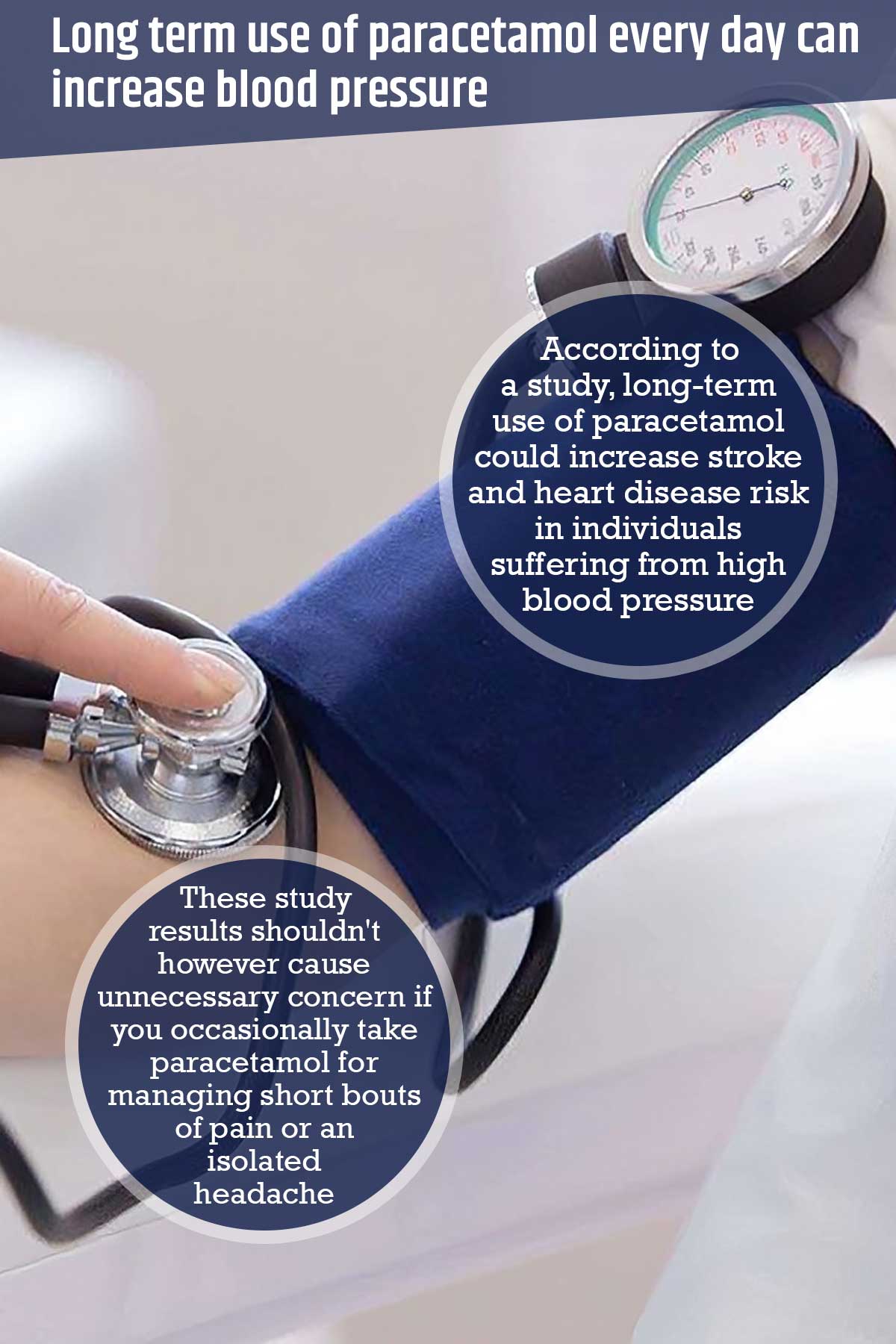According to a study, long-term use of paracetamol could increase stroke and heart disease risk in individuals suffering from high blood pressure.
The researchers recommend that individuals having a long-term prescription for the painkiller, which is usually used for treating chronic pain, should choose the lowest effective dose for the least amount of time.1✅ JOURNAL REFERENCE
DOI: 10.1161/CIRCULATIONAHA.121.056015
Paracetamol was often recommended as a safer substitute for another type of painkiller known as NSAID, which have been proven to increase blood pressure and heart disease risk.
For this study, 110 individuals with a history of hypertension were given what is a routinely prescribed dose for those with chronic pain of 1 gram of paracetamol 4 times daily, or a placebo for 2 weeks.
Individuals prescribed the paracetamol experienced a substantial increase in blood pressure in comparison to individuals who took the placebo.
This increase was comparable to that observed with NSAIDs, and according to the researchers, may be expected to increase the risk of stroke or heart disease by around 20%.
The researchers suggest the results should lead to a review of long-term prescriptions of paracetamol to patients, especially individuals with high blood pressure, or those at risk of stroke or heart disease.
These results aren’t related to short-term use of paracetamol for fever or headaches, but it does suggest a risk for individuals who take it on a regular basis typically for chronic pain over the longer term.
The study results reveal how quickly regular paracetamol use could increase blood pressure in individuals with high blood pressure who already have an increased risk of stroke and heart attacks.
These study results shouldn’t however cause unnecessary concern if you occasionally take paracetamol for managing short bouts of pain or an isolated headache.



